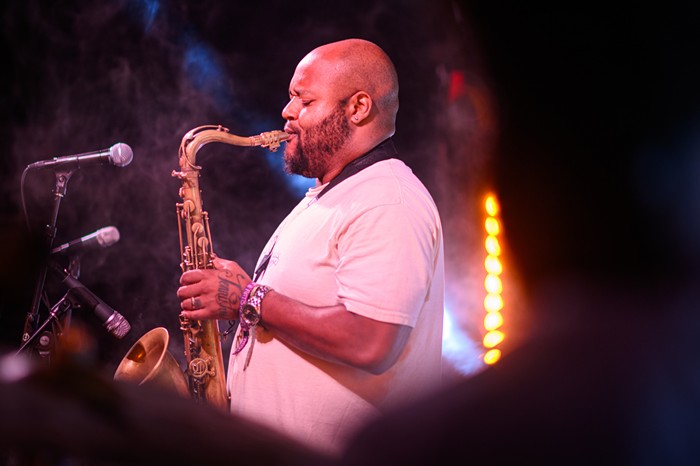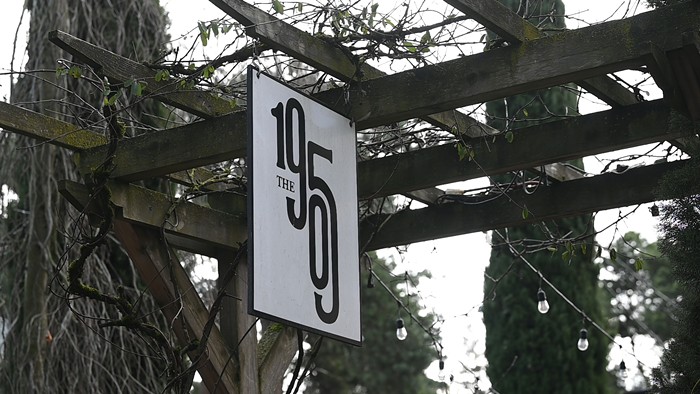FROM THE YOUTHFUL DAZE of his debut full-length, 2010’s Causers of This, to last year’s slightly harder What For?, Chaz Bundick of Toro Y Moi takes listeners on a laidback journey through genres.
In August, Bundwick released Live from Trona, a striking 57-minute visual album recorded in one day in Trona, California—a small town three hours outside of LA in the middle of the Mojave Desert.
“It was kind of this thing that felt like a dream,” he says. “I know it happened, but it’s just a memory now.”
The album’s backdrop is definitely dreamlike; the Mojave’s reddish-pink hues perfectly complement the floral textures of Toro Y Moi’s luxuriant and eclectic guitar pop. It’s not exactly a concert, since Bundick performed Live from Trona to an empty desert, but somehow the audience’s absence emphasizes his fire-starting creative energy as he reimagines mostly older songs.
Bundick says his surroundings always impact his music. He grew up in South Carolina, where it’s “very humid” with “lots of red clay.” He later relocated to the Bay Area, and the region’s tall redwoods and mystifying fog clearly had an influence on 2013’s Anything in Return. Now he’s making the Pacific Northwest his permanent home, and finds himself immersed in Portland’s greenery and subtle gloominess.
“I’ve noticed that my music so far has been a little bit more on the lyrical side,” he says. “I’ve just been paying more attention to the words.”
But Bundick’s creative malleability is nothing new—his ability to blend chillwave, R&B, synth-pop, and hip-hop has allowed him to collaborate with a wide range of artists, including Washed Out, Tyler, the Creator, and Travis Scott.
“In the future, there’s hopefully gonna be more artists that dwell in the hip-hop production world and the psychedelic rock world,” he says. “I feel like it doesn’t have to be one genre. Hopefully there’s more to come. It’s a fun experiment.”
Bundick is half Filipino and half African American, and says that before his big move to Portland, people often asked about how he’d adjust to the city’s infamous whiteness.
“That never ever came up in my head, ‘Oh yeah, there’s a bunch of white people in Portland,’ because I don’t think like that,” he says. “Most likely because I grew up in South Carolina, and I was always the black kid everywhere, so it’s kind of just like my world.
“I grew up being called an ‘Oreo’ all the time—all the time. It got to me. It was like, ‘Okay, so I can’t fit in there, I can’t fit in here. Where do I go?’ So I just sort of fell into the subculture of skateboarding and music. And that’s the perfect place to be, really. I think that’s the best thing about music. It’s seriously universal.”


















